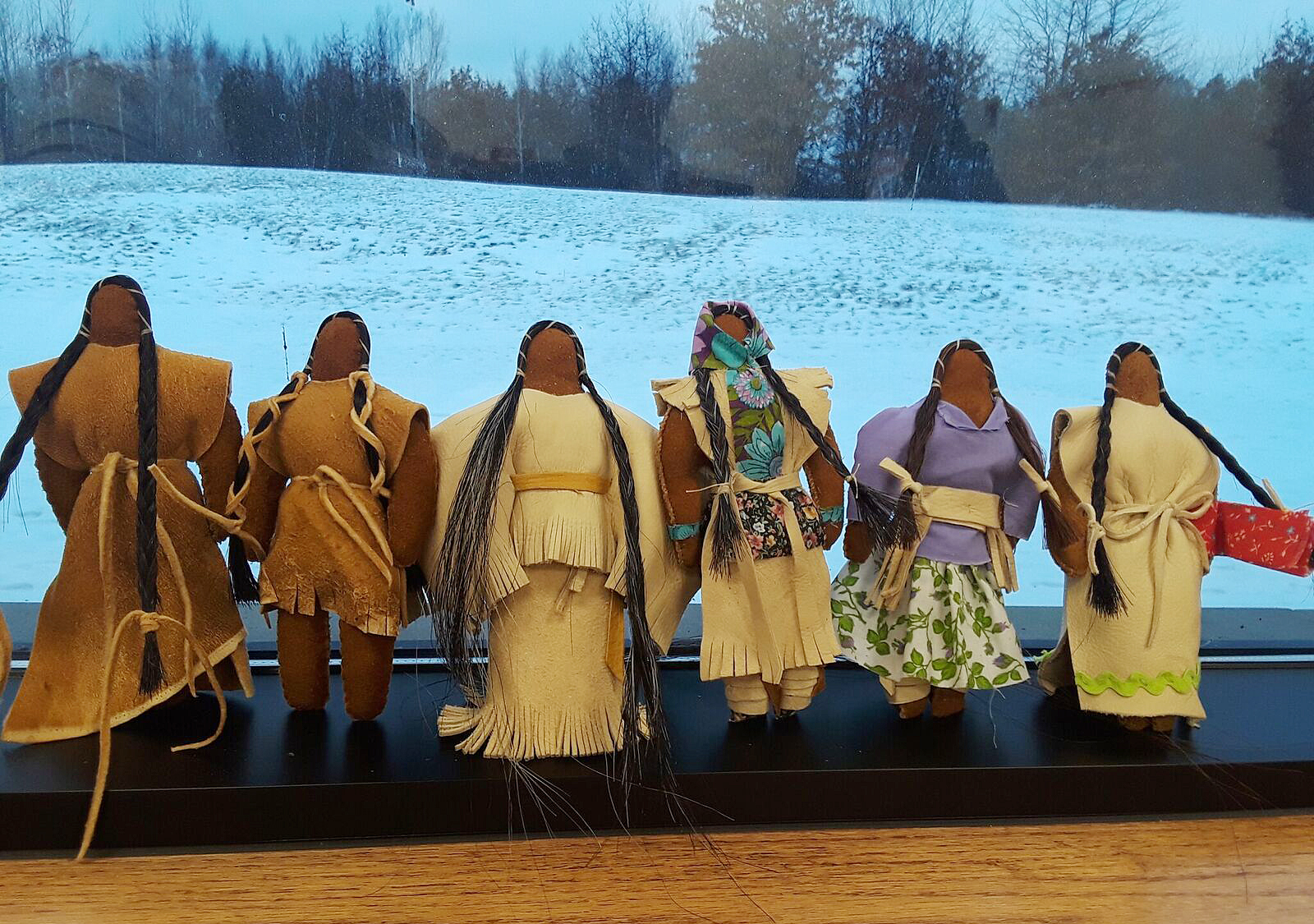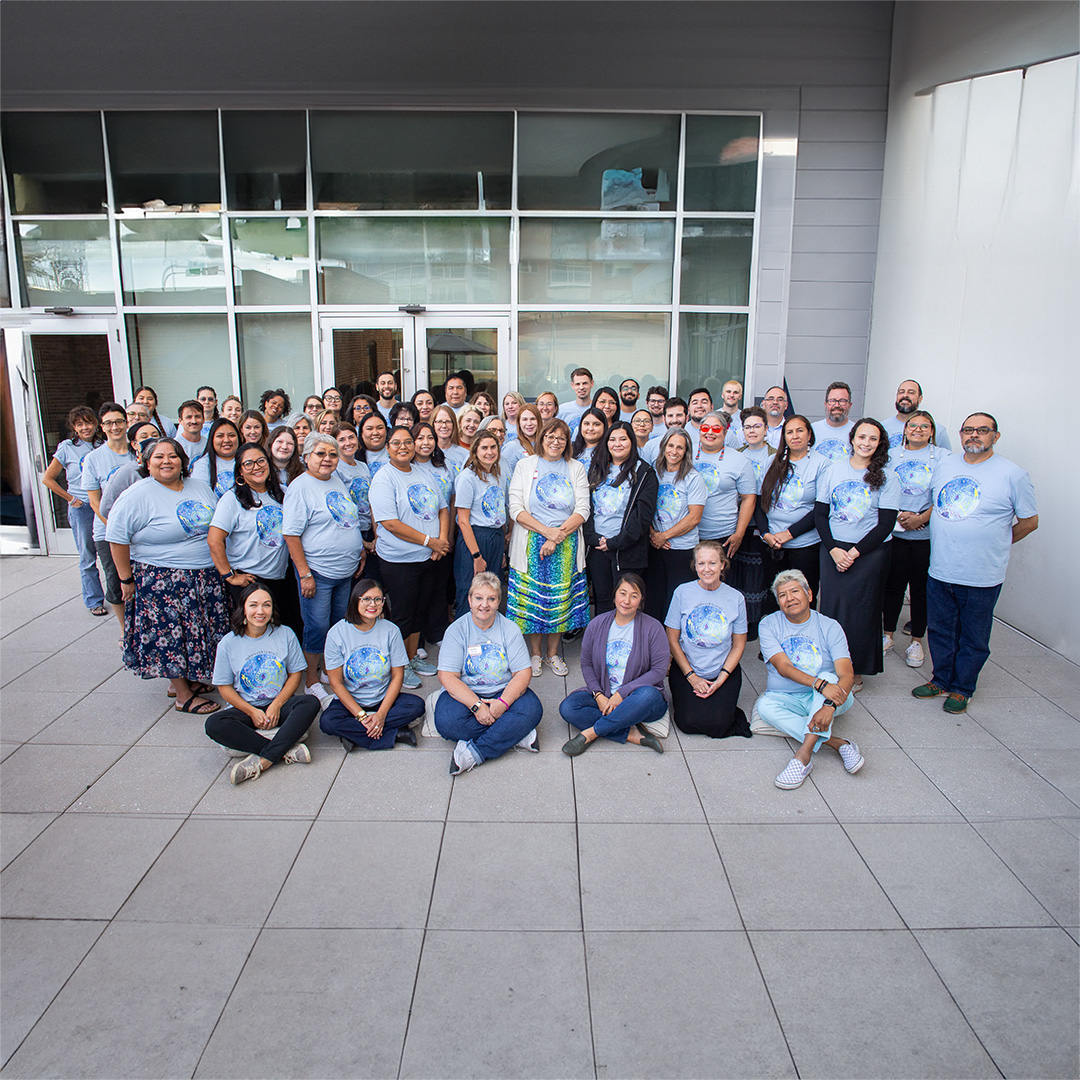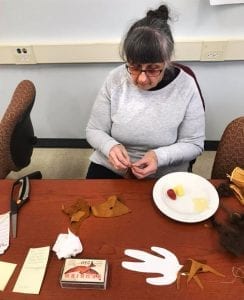
Master Artist, Joyce LaPoint leads the workshop on creating Faceless Dolls at Leech Lake Tribal College in November of 2017.
The American Indian College Fund is proud to offer a cross-collaboration learning opportunity through the Restoration and Preservation of Traditional Native Arts and Knowledge Grant. Tribal Colleges and Universities (TCUs) program administrators of the Traditional Native Arts grant will have the opportunity to learn, observe and exchange ideas from each other through the “Sister Site Visit” program.
The “Sister Site Visit” will give the visiting TCU program administrator the opportunity to see how the host TCU has developed and implemented their Native arts program. In addition, program administrators will have the chance to participate in the hosted workshops and learn from the master artist(s).
The first “Sister Site Visit” was hosted by Leech Lake Tribal College located in Cass Lake, Minnesota in November 2017. Leech Lake Tribal College hosted a “Faceless Dolls” workshop with master artist, Joyce LaPoint, teaching the class. Two TCU visiting project administrators participated alongside community members. Renee O’Kimosh, Outreach Based Training Specialist, from the College of Menominee Nation and Jennifer Martel, Sitting Bull Visitor Center Coordinator, from Sitting Bull College were the first two administrators chosen to participate.
Here they talk about their experiences:
Jennifer Martel:
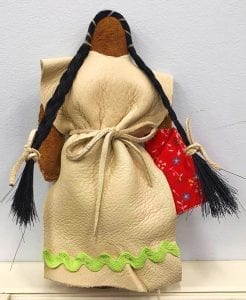
Jennifer Martel’s completed doll.
One of many opportunities through The College Fund is being able to attend a hands-on Faceless Doll Class at the Leech Lake Tribal College on November 10 and 11, 2017.
As a project coordinator for the Traditional Native Arts program through The College Fund, sometimes we don’t get to participate because of the many logistics that go through making sure that each class is a successful one. Having the Sister Site Visit opportunity has given me much more meaning to my efforts in helping the students, my community, and my people to preserve and carry on traditional art forms to their families.
Learning from an elder of the Fond Du Lac Community, was an honor and to learn about the meaning of the Faceless Dolls and how they are made. As a group of ladies attending, we communicated ways that the Faceless Dolls can be helpful to our communities, especially to our young ladies and women. Just having open communication of how to make our classes better or what doesn’t work and sharing the good things happening with the classes sure made it worth being there!
Renee O’Kimosh:
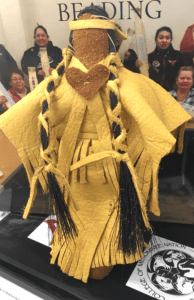
Renee O’Kimosh’s completed doll.
Today, I met a beautiful Elder, Joyce LaPoint, with a very soft voice, who taught me the importance of the past, present and future. She shared her story to express why we rely on the past to pass on our knowledge of the teachings and the importance of continuing our heritage. With a little excitement in my heart, I set out on an eight-hour drive to Leech Lake Tribal College in Minnesota, wondering what challenges I was going to meet when I arrived.
Believe me, I did a little research on the project before I left home, just so I could ask a lot of questions. No need for that, the moment she started talking I was mesmerized. She made everyone in the room feel welcome and she settled my nervousness. I was honored with her presence.
As I followed her instructions and began to sew my doll, I realized that things I took for granted would have to be looked at again. To go into a store and buy a doll would never provide me with the satisfaction of my faceless creation. The materials we used had meaning and love. The story behind the hair from her grandmother and the harvesting of milkweed for stuffing put tears in my eyes. The smell of the buckskin made me feel honored to be a part of this group. I listened tentatively, as I wanted to walk away from my new friends knowing they are a part of my doll.
Wae Wae Nen (“thank you” in the Menominee language) to The College Fund for allowing this visit to happen. We shared, we smiled, and we hugged. Wae Wae Nen to Bridget Skenadore for providing me with the opportunity to attend and to the donors who keep these gifts alive.
What is in your heart is more important than how you look.
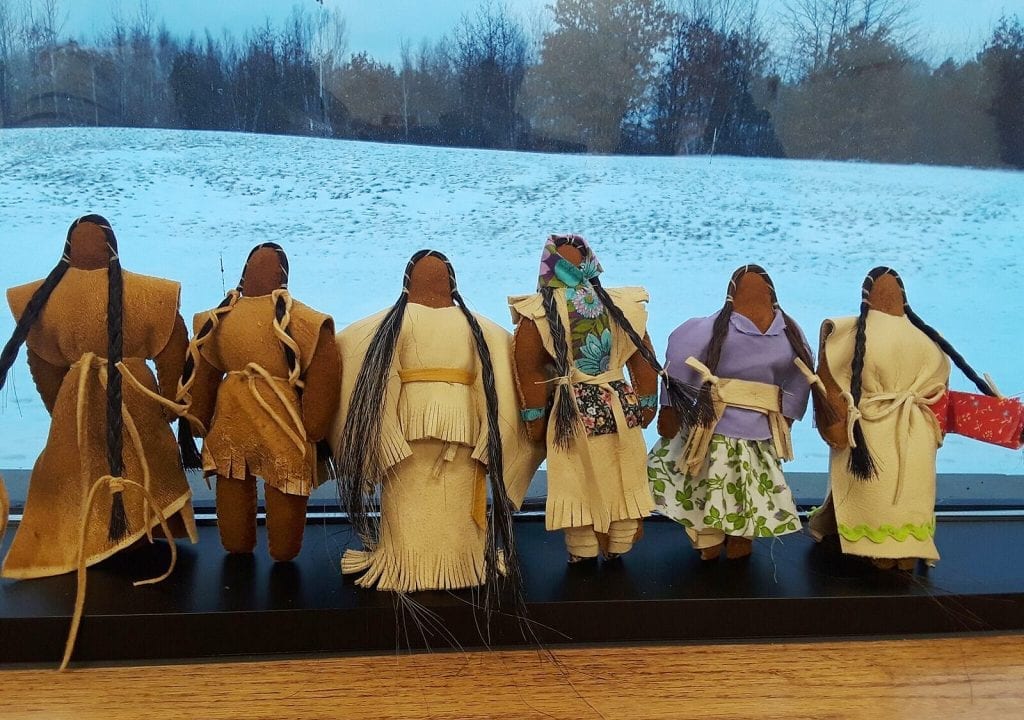
A lineup of all of the completed faceless dolls done at the workshop.
The first “Sister Site Visit” was a great learning experience for both the host TCU and visiting TCU project administrators. Future opportunities will be available for program administrators located in the upper-Midwest to participate in Traditional Native Arts workshops.

